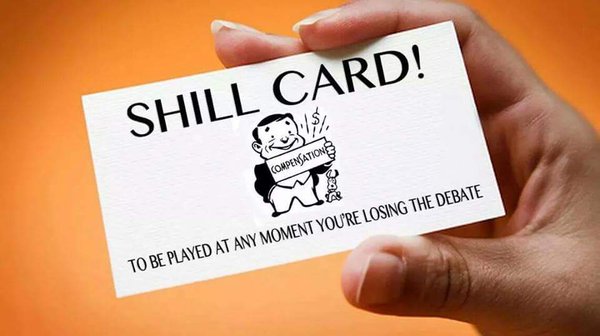Glance through any sufficiently long comments section, and you will find that two things almost always happen: Somebody makes a reference to Hitler (Godwin's Law), and somebody accuses another of using a logical fallacy. The first is clearly ridiculous, but the second is troublesome because many popular writers also succumb to the same temptation.
As I wrote for RealClearScience, the problem with this approach is that not every disagreement is the result of a logical fallacy. Pretending otherwise leads to the socially subversive conclusion that, if only every person on Earth was completely logical, everybody would agree on everything. (It's subversive because it encourages people to believe that their opponents are illogical.) But that's just not true. Even if every person was perfectly rational, differences in values would still prevent unanimous agreement. That is one reason why I so strongly disagree with the ever-growing list of fallacies.
Having said that, I would now like to submit my own new fallacy*: argumentum ad aurum (argument to gold). But you're probably more familiar with it phrased as "follow the money."
This fallacious argument is thrown over and over again at scientists and journalists, in particular. Don't like a scientist's research? Follow the money! Don't like a journalist's opinion? Follow the money! For many, the only conceivable reason that a person dares to disagree is because he or she is being paid off by [Insert BIG ______ here]. In this bizarre worldview, there are only two types of people: truth-tellers and paid shills.

This nonsense argument has been used against me more times than I can count, even though I was a poorly paid graduate student for six years, and then a modestly paid journalist for six years. (I wish I was a shill; I'd be making a lot more money than I am now! Monsanto, you're reading this, right?)
Why does the "follow the money" argument fail so miserably? There are three major reasons.
First, everybody has to get their money from somebody. Unless you're the Fed, you don't get to create your own cash. Starbucks employees get paid by Starbucks. Small business owners get paid by their customers. Newspapers and media outlets get paid by advertisers. Nonprofits get paid by donors and philanthropists. So, if one person is a shill because of his funding source, then literally every person on the planet is a shill.
Second, as counterintuitive as this is going to sound, money usually doesn't change people's opinions. Political activists give money to candidates who share their beliefs. Philanthropists give money to charities who share their goals. And donors give their money to nonprofits who share their mission. Put simply, rich people and companies give their money to those who already agree with them.
As a fun experiment, ACSH President Hank Campbell was curious if our news coverage of soda changed in the years that we received donations from Coca-Cola. It did not.
Third, research suggests that people who are paid to support a particular cause are less persuasive. So, hiring "paid shills" would be a bad business decision.
I know many of you will remain skeptical, particularly of any organization that unapologetically supports the scientific consensus on vaccines, GMOs, biotechnology, chemistry, natural gas, and nuclear power. To those of you, I will echo the words of our late founder, Beth Whelan: "If you think money changes our minds, then write us a check."
*In reality, this isn't a new fallacy. Instead, it could qualify as a specialized type of ad hominem fallacy.




